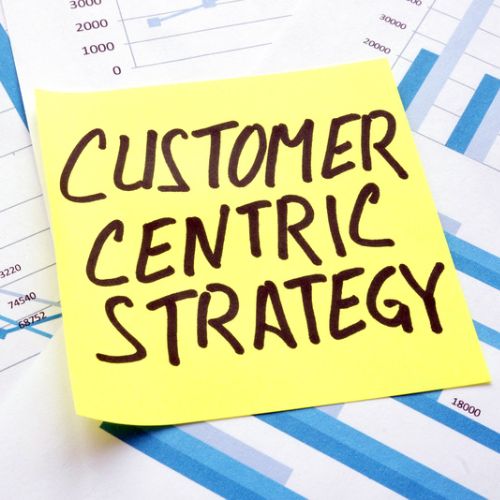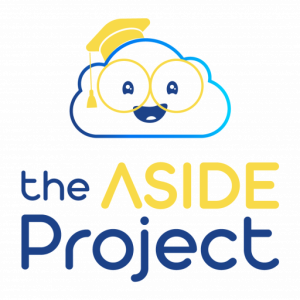OUR CATALOGUE

–Foundations of business strategies
Duration: 8h
Level: All levels
Language: FR | ENG | AR
Delivery: On-site | Remote
Prices:
On-site (Request a quote)
Remote (235$)
Course Details:
- The fundamentals of business strategies
- The role of a business strategist within organizations
- The fundamentals of an industry’s structure : components and interfaces
- Assessing an industry’s structure : tools and approaches
- The link between industry’s dynamics and profitability
- The Startups Business Innovations Challenges
- The SMEs industry’s structure & Innovative potential
- Strategic analysis fundamentals
- Introducing capabilities in business strategies
- Conduct capabilities analysis and how to use it : tools, methods and practice scenarios
- Conduct a strategic analysis: approaches and frameworks
- Understand the four competitive positions for a business
- Conduct a competition analysis : tools and approaches
- Understand your market and position your business


–Go-To-Market strategy course
Duration: 4h
Level: All levels
Language: FR | ENG | AR
Delivery: On-site | Remote
Prices:
On-site (Request a quote)
Remote (138$)
Course Details:
- What’s a go-to-market strategy: From concepts to real life implementation
- Overview of the different GTM types, challenges, importance & opportunities
- The differences between GTM, Marketing, Sales & Business strategies
- What skills are required to successfully define the right go-to-market strategy?
- How to choose the best GTM strategy for your business: Product-led, Sales-led, Marketing-led.
- The GTM strategy steps: who (target audience), what (your product/service), why (your branding & competitive advantage), where (your target markets), how (marketing, sales & distribution), when (launch).
- Executing your GTM strategy: Budgeting, resource allocation, planning & monitoring
- Practice group workshop (including an application model) – closing


–Customer-centricity fundamentals
Duration: 4h
Level: All levels
Language: FR | ENG | AR
Delivery & Price: On-site | Remote
Prices:
On-site (Request a quote)
Remote (138$)
Course Details:
- What’s a customer-centric business: meaning & use case analysis
- The difference between organization centricity, product centricity & customer centricity in business strategies
- Why talk about customer centricity today?
- Define your customer-centric strategy for the core pillars of your business: customer development, acquisition, retention and engagement
- Implementing customer centricity into your product development process
- Your Customer centric Marketing & sales strategies
- How to monitor your company’s customer centricity level: tools & metrics to make sure that your customers will always love your product/service
- Practice group workshop (including an application model) – closing

–Design thinking fundamentals to design products that customers love
Duration: 8h
Level: All levels
Language: FR | ENG | AR
Delivery: In-site | Remote
Prices:
On-site (Request a quote)
Remote (235$)
- Do we understand what a design thinking process is?
- Design thinking vs. Design culture: differences & similarities
- Where does design thinking fit into your business strategies
- The fundamentals of an industry’s structure : components and interfaces
- Assessing an industry’s structure : tools and approaches
- The link between industry’s dynamics and profitability
- The Startups Business Innovations Challenges
- The SMEs industry’s structure & Innovative potential
- Empathize phase
- Define phase
- Ideate phase
- Prototype phase
- Test phase
- Understand the four competitive positions for a business
- Conduct a competition analysis : tools and approaches
- Understand your market and position your business


–The foundations of a successful “Product-Market” fit validation
Duration: 8h
Level: All levels
Language: FR | ENG | AR
Delivery: In-site | Remote
Prices:
On-site (Request a quote)
Remote (235$)
- Why is your idea not worth it?
- What does it mean to validate your PMF?
- Use cases: Analysis & open discussions about the risks of not validating a PMF for your business
- When and how should you define your product market fit validation strategy?
- The core pillars of a successful product market fit strategy: target customers, customers needs, value proposition, MVP, testing & improving
- The Lean startup cycle
- Monitor, adjust & pivot your idea
- Product-market fit validation framework & metrics for your business idea
- Practice group workshop (including an application model) – closing

–Digital marketing strategy fundamentals
Duration: 8h
Level: All levels
Language: FR | ENG | AR
Delivery: In-site | Remote
Prices:
On-site (Request a quote)
Remote (235$)
- Digital marketing popularity: what was missing and what we are doing today
- The role of digital marketing in today’s businesses
- Digital marketing: Myth VS reality
- Digital marketing & sales : the unbreakable link
- Who you are selling to: customers, consumers and everything in between
- What’s your flow of information: DM channels (Social media, Ads, influencers, word of mouth, partners, networking & events, etc.)
- What story do you tell and why: branding & digital marketing
- What you need: tools, skills & funding
- Digital marketing creativity: the power of your content
- Step 1: digital marketing process and objectives: choosing the right KPIs
- Step 2: know your customers (specifications, needs, behaviors, habits & desires)
- Step 3: choose your DM channels (SM, ads, referrals, mailing lists, etc.)
- Step 4: budgeting & planning
- Step 5: Creating content for your channels
- Step 6: Data & analytics to monitor your progress
- Step 7: adjusting & scaling
- Should you outsource your digital marketing strategy & activities?
- Future Digital Marketing Challenges: GPDR, POLICIES, PRIVACY, COOKIES, etc.
- Social media disruption

–Leveraging the benefits of the circular economy to accelerate your business
Duration: 4h
Level: All levels
Language: FR | ENG | AR
Delivery: In-site | Remote
Prices:
On-site (Request a quote)
Remote (138$)
- Circular economy: from theory to real life implementations
- The principles & objectives of circular economy in business today?
- SMEs & the circular economy scene: the business challenges & opportunities
- Impact of the circular economy on the business value chain
- Circular vs. linear vs. sustainable economies in your business model
- Can you ignore the impact of the circular economy on your business? (a reflective exercise to get participants to think at the system level not only at the product level and to see their business projects as a whole end-to-end process)
- Closing the loop game: participants will be asked to analyze different value streams of x number of companies (TBD) and play the role of strategy & management consultants working to optimize the business models based on the circular economy principles
- step 1: identify your open loops within your value streams
- step 2: what are your options? and how to choose the best one
- step 3: how to implement them within your business model
- step 4: overall global optimization of your business model
- step 5: monitor & manage the associated risks
- closing & summary

–Build an E-commerce website using no-code tools
Duration: 8h
Level: All levels
Language: FR | ENG | AR
Delivery: In-site | Remote
Prices:
On-site (Request a quote)
Remote (235$)
- E-commerce business requirements & models
- What can you sell online and how ?
- Are you ready to manage the overall operations of an e-commerce business?
- How to choose the right model for your e-commerce business?
- Do you really need an e-commerce website for your business?
- Understand the core pillars that define an
e-commerce website: what do you need to implement & why?
- How to properly define your online store requirements: frontend, backend, UX/UI ?
- No code tools for e-commerce websites: challenges & opportunities
- Step 1: planning & budgeting your website development
- Step 2: choosing the right infrastructure for your website
- Step 3: building your website content & configure your online store/sales channels
- Step 4: optimize your website : A/B testing, UX/UI scenarios & validations
- Step 5: Digital Marketing tools integration
- Step 6: cybersecurity, regulations & compliance
- Step 7: website maintenance & updates (using the right metrics to monitor your online store)

